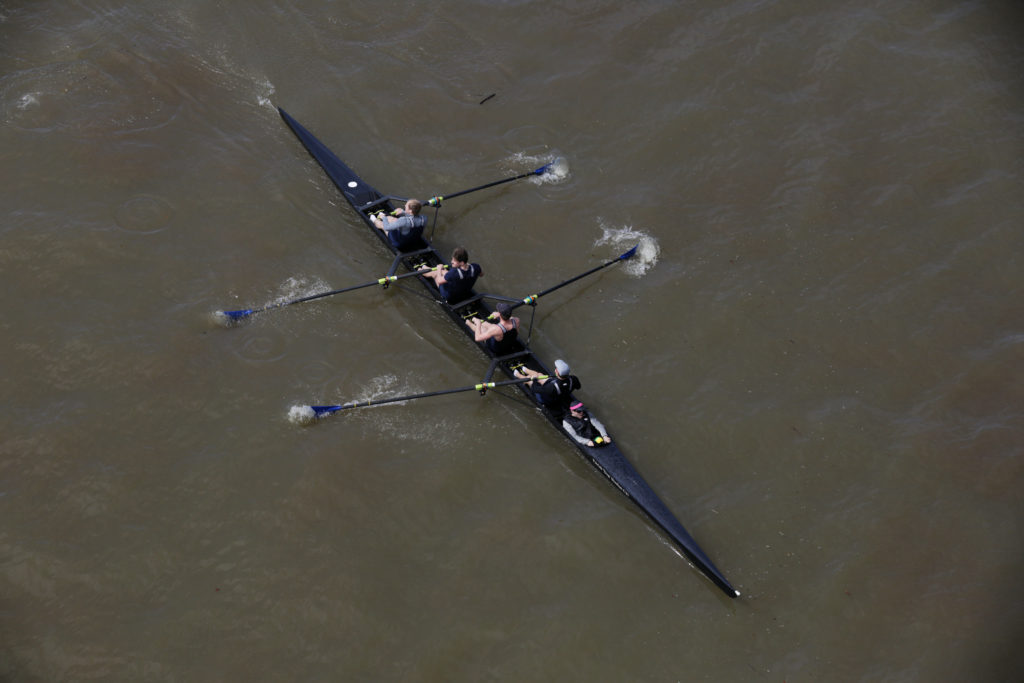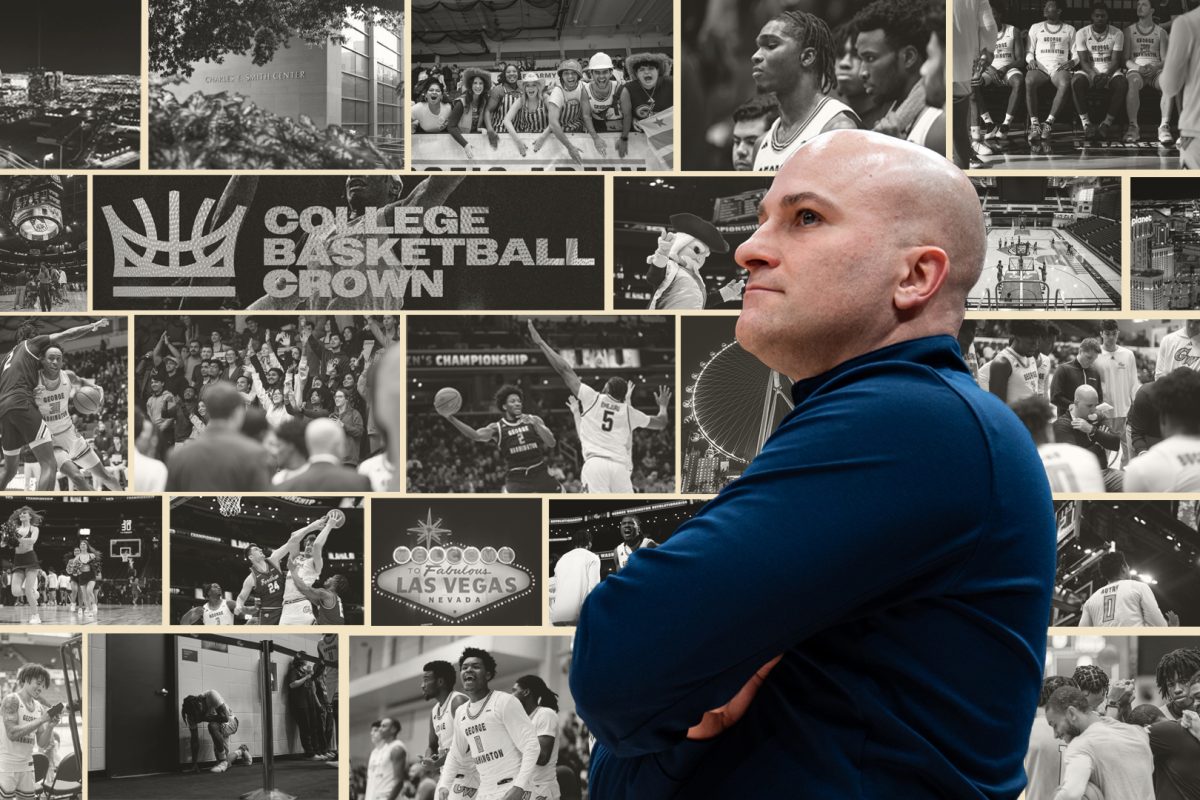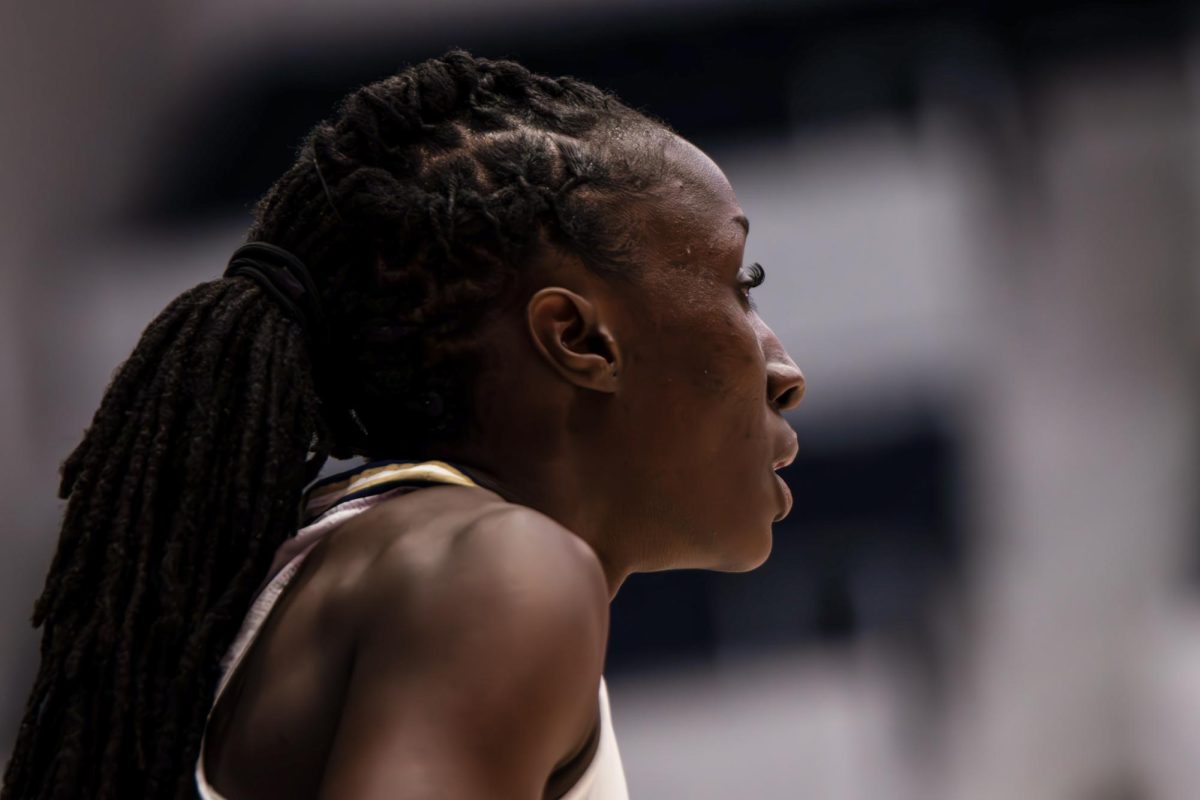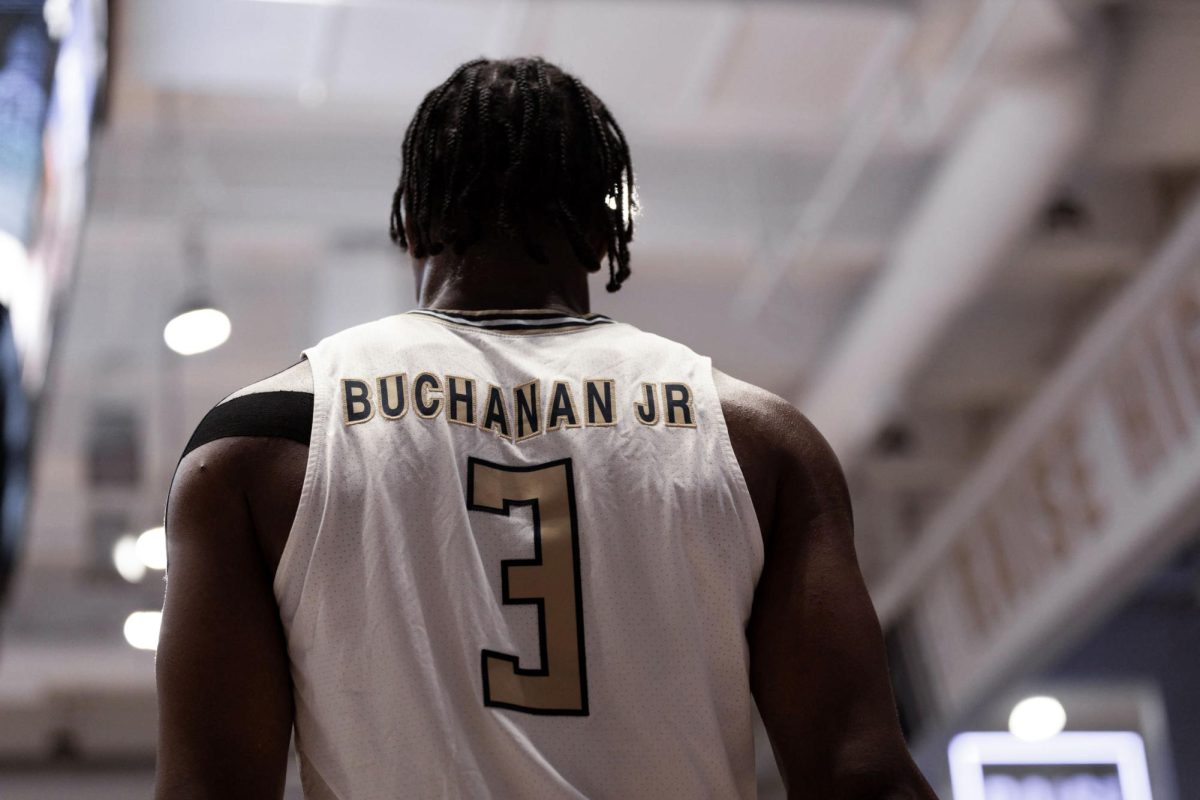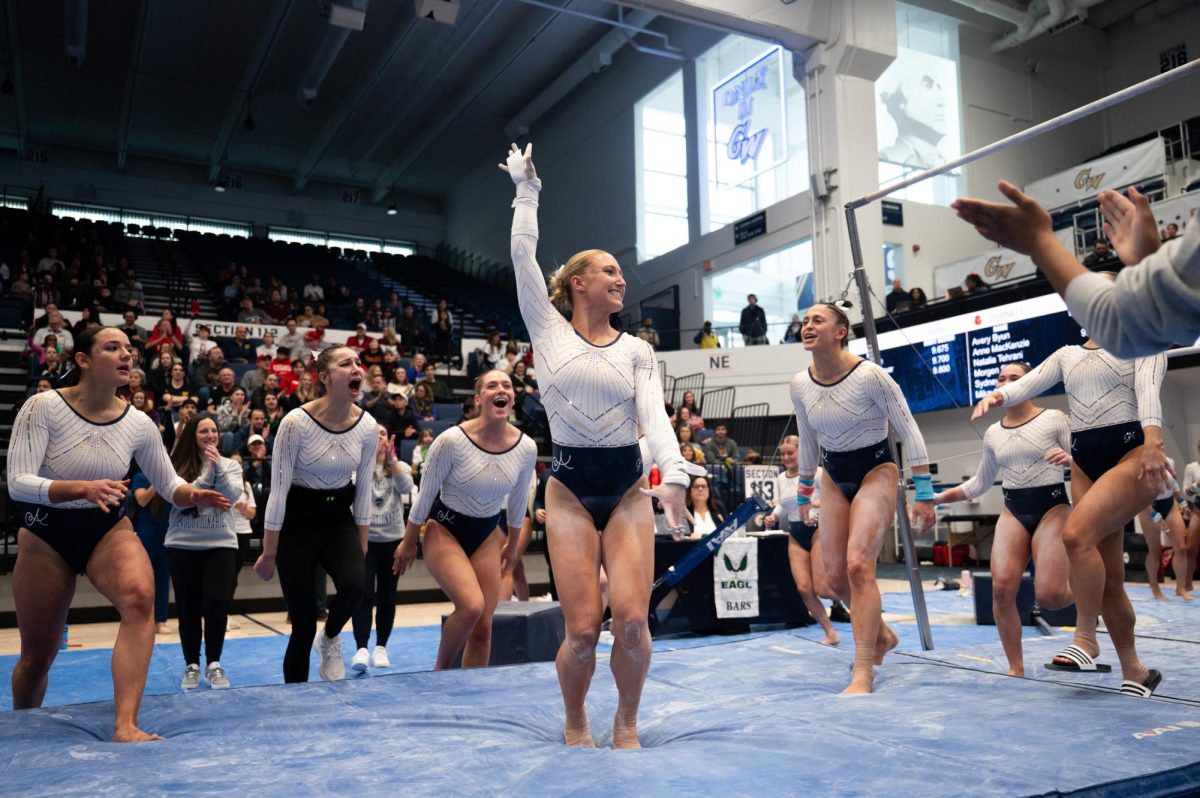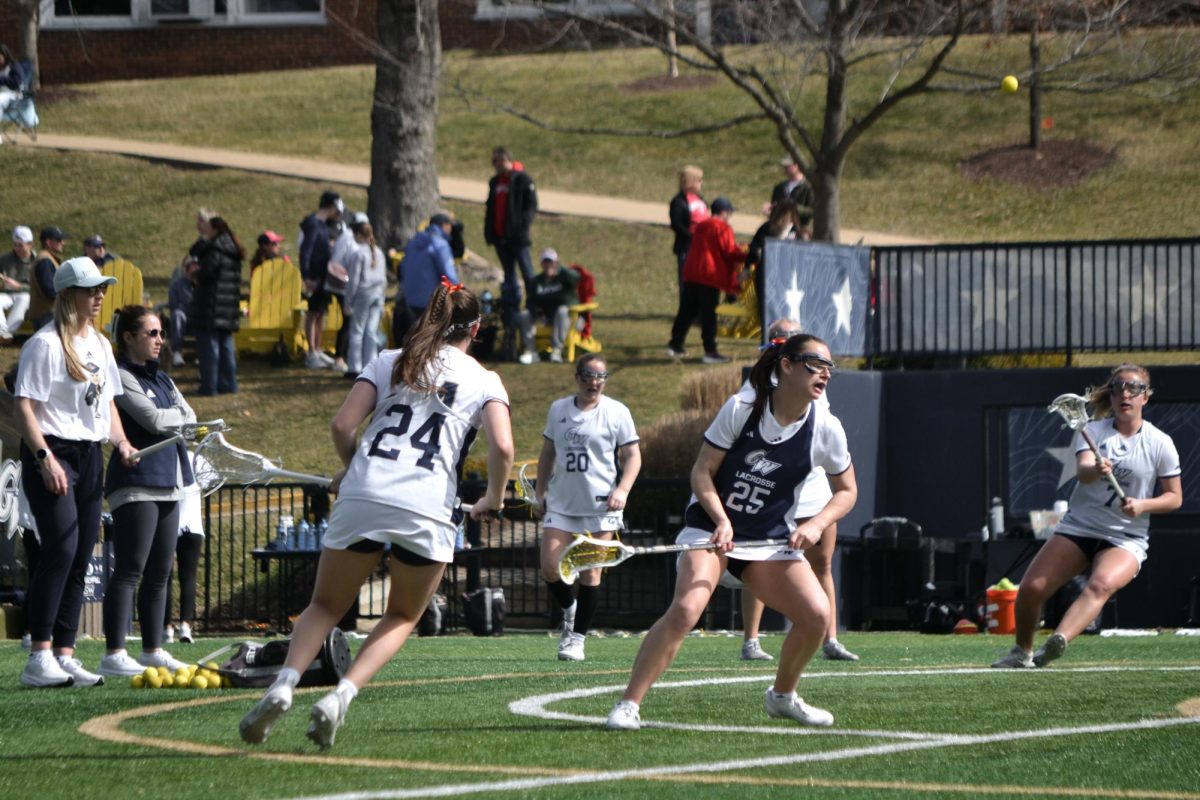Rowers said their new head coach has made a smooth transition into the program since he took over in January.
After 10 years with the men’s rowing program, former men’s rowing head coach Mark Davis stepped down in December to take a coaching position at a Washington rowing organization, and Eric Gehrke took charge this spring. Senior John Knies said the transition to a new head was “seamless” because Gehrke kept the training consistent with Davis.
“Eric didn’t come in and try to change what we were doing,” Knies said. “He saw that we were kind of a self-sufficient team. We were already doing a lot of really good things, so he was just trying to build upon that a little, not start from the beginning.”
Knies added that after the team found out about Davis’ departure in December, assistant coaches Maddux Castle and David Lincoln held down the fort during its winter training trip in early January. Lincoln was hired under Davis’ tenure, and Castle joined the squad this season after competing with the team from 2014-18.
“It was kind of like a seamless transition,” Knies said. “We went on our training trip without a head coach and they kind of took over. I think the athletes took a big ownership on themselves and knew we had to do more, kind of police ourselves.”
The Colonials were originally scheduled to attend another training trip over the course of spring break, extending from March 16-21. But their current schedule has been truncated, ending after the fall slate, according to the GW Athletics website. Knies said the squad has not changed its practice schedule under Gehrke but has become more focused and efficient with its time.
“Every morning, we have from seven to nine to get in our practice on the water and I think I noticed the first day we were out there for the same amount of time, but just got a lot more meters in, which will do really good for us in the long run,” Knies said.
While the team has not seen major changes in the water during practice, Knies said Gehrke has emphasized communication between himself and the rowers, which makes the team feel more comfortable and closer with the coaching staff.
Gehrke last coached collegiately at USC, where he served as an assistant coach for the women’s program. He joined GW from the Saratoga Rowing Association, where he served as the varsity girls coach.
Gehrke said he wasn’t applying for different jobs, but Davis, who is a friend of Gehrke’s, suggested the position to him after he announced his departure. A Washington, D.C.-native, Gehrke said coming home factored into his decision to helm the program.
“I found this, GW, in particular, to be a place where it was very natural to exist in, and as a coach, if you can find a place where you naturally exist, then it’s easier to get others to also feel like they can naturally exist,” Gehrke said.
Last season, the Colonials nabbed their highest finish in program history at the IRA National Championship in June, notching a 13th-place finish for its Varsity 8 boat. Gehrke said his strategy for entering the program midseason was to keep the changes small and allow the team to continue on its upward trend after last season.
“Add on some marginal changes, 1 percent here and 1 percent there, they can help the growth,” he said. “But beyond that, find their strengths, aim at their strengths and teach away from weakness and toward their mastery.”
He added that he will measure the success of his team by the speed of their boats and by the team’s “agency over their own plan.”
“We can’t own their goals and we can’t own their boat speed but they have to, and then they make the changes themselves internally, maybe the right lifestyle choices and the right nutritional choices,” he said. “And then that creates the long-term success that hopefully we’re going to be aiming for.”
Lincoln said the team has remained responsible for its trainings and each rower despite the coaching shift.
“The culture doesn’t necessarily come from myself or Eric or anybody else in the department,” he added. “It’s in the athletes and that was very solid before I got here before Eric got here, and that’s continued to be solid.”
The team’s long-term plans for international competition remain in place. This fall was the first time since 2013 where the team did not compete and instead opted to save funds for the Henley Royal Regatta race in the United Kingdom in June.
“You can tell pretty quickly when you walk into practice that there’s some speed here that can compete at that international level. So yes, we will be bringing that boat to Henley,” Gehrke said.
Belle Long contributed reporting.


